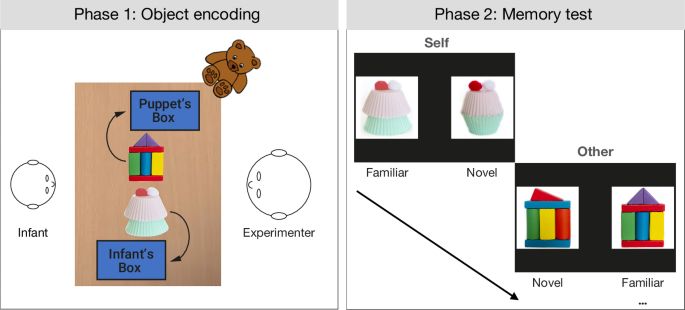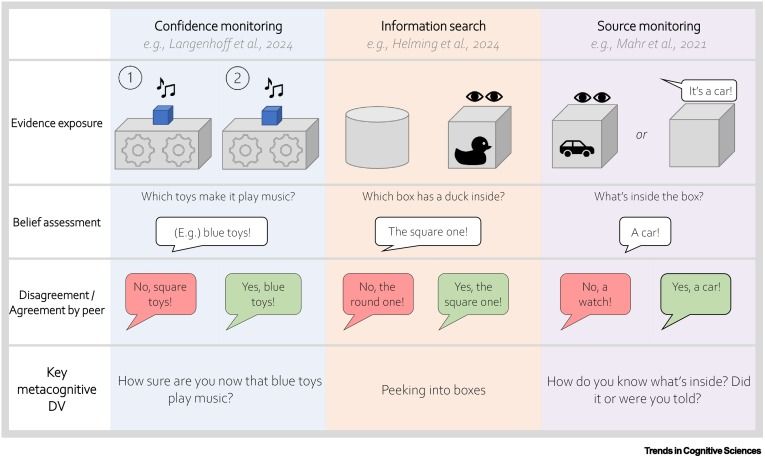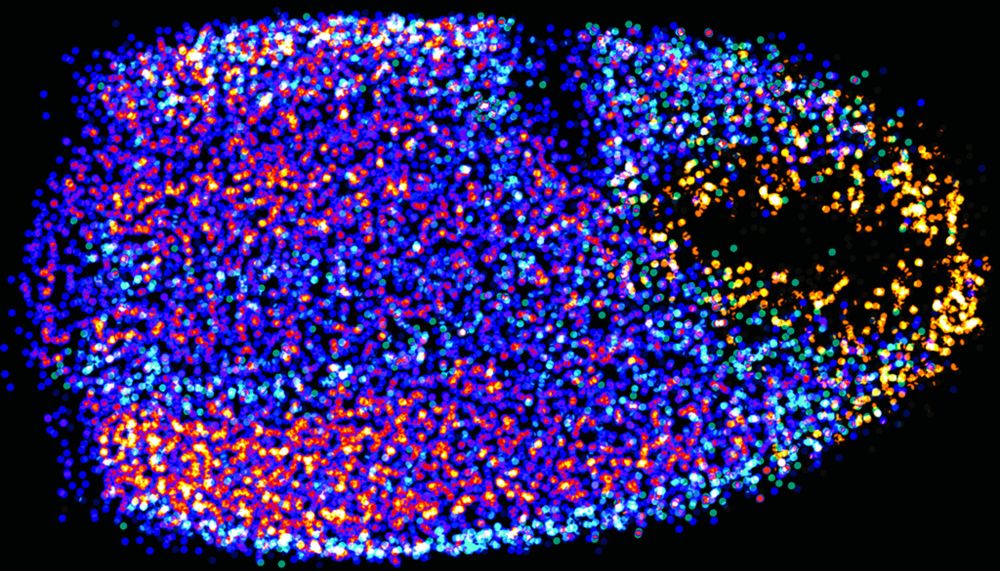Come work with me on cognitive diversity, development & dynamics in beautiful Amherst, Massachusetts! Graduate student applications are due a week from today. cognitiveconstructionlab.com
25.11.2025 11:47 — 👍 3 🔁 1 💬 0 📌 0

Positions available - Max Planck Institute for Evolutionary Anthropology
Fully funded #PhDposition in Comparative Cultural Psychology @mpi-eva-leipzig.bsky.social.
We will use touchscreen experiments & eyetracking to study mental simulations in nonhuman apes & human children across different cultures.
All info here: www.eva.mpg.de/career/posit...
Please share / apply!🙏
13.11.2025 08:33 — 👍 55 🔁 75 💬 0 📌 0

Intrigued by animal innovation and avian cognition? My PI Dr. Megan Lambert is advertising a new shiny PhD position studying innovation in kea parrots! Info attached 🤩🦜
For inquiries: Megan.Lambert@vetmeduni.ac.at
11.11.2025 10:20 — 👍 46 🔁 48 💬 0 📌 4
Are humans the only rational animals?
For thousands of years, we’ve thought so.
Our new paper, out today in Science, suggests otherwise!
We present evidence that chimpanzees possess several core capacities for rational thought.
Check out Emily's thread: bsky.app/profile/emil...
30.10.2025 18:52 — 👍 34 🔁 5 💬 0 📌 0

We also showed that chimpanzees respond appropriately to so-called “second-order evidence”—that is, evidence about evidence.
This indicates that chimpanzees explicitly represent what has been called the *evidential relation*: the causal connection between evidence and hypothesis. (6/8)
30.10.2025 18:47 — 👍 0 🔁 0 💬 0 📌 0
Our study also suggests that chimpanzees *explicitly* represented the evidence for their beliefs.
When we showed them evidence, and then showed them that *same* piece of evidence again later, they disregarded it. When they instead saw a *new* piece of evidence, they changed their minds. (5/8)
30.10.2025 18:47 — 👍 0 🔁 0 💬 1 📌 0

Chimpanzees responded to the counterevidence in line with the rational predictions of a mathematical model of rational belief revision.
That is: they revised their prior belief when the counterevidence was stronger than the initial evidence, but maintained their belief otherwise (4/8)
30.10.2025 18:47 — 👍 0 🔁 0 💬 1 📌 0

Chimpanzees participated in a foraging task. We first gave them evidence that food was in one location, and let them make a first choice. Then we presented them with *counterevidence*: evidence for the other location. (3/8)
30.10.2025 18:47 — 👍 0 🔁 0 💬 1 📌 0

Chimpanzees rationally revise their beliefs
The selective revision of beliefs in light of new evidence has been considered one of the hallmarks of human-level rationality. However, tests of this ability in other species are lacking. We examined...
Are humans really the only rational animals? Our NEW PAPER 🎉 out in @science.org suggests otherwise! In a large collaboration led with my joint first author @hanna-schleihauf.bsky.social, we show that “Chimpanzees rationally revise their beliefs” 🧵
30.10.2025 18:17 — 👍 1555 🔁 433 💬 163 📌 55

Dr. Jane made an indelible mark on our understanding of chimpanzees and other species, and also of humankind and the environments we all share.
She inspired curiosity, hope, and compassion in countless people, and paved the way for many others.
#ThankYouJane #RememberingJane
Photo: Marko Zlousic
01.10.2025 21:00 — 👍 352 🔁 140 💬 19 📌 33

www.nytimes.com/2025/09/27/u...
27.09.2025 15:15 — 👍 9 🔁 2 💬 1 📌 0

Research Coordinator, Minds, Experiences, and Language Lab in Graduate School of Education, Stanford, California, United States
The Stanford Graduate School of Education (GSE) seeks a full-time Research Coordinator (acting lab manager) to help launch and coordinate the Minds,.....
I’m hiring!! 🎉 Looking for a full-time Lab Manager to help launch the Minds, Experiences, and Language Lab at Stanford. We’ll use all-day language recording, eye tracking, & neuroimaging to study how kids & families navigate unequal structural constraints. Please share:
phxc1b.rfer.us/STANFORDWcqUYo
15.09.2025 18:57 — 👍 73 🔁 48 💬 2 📌 0

Transmission networks of long-term and short-term knowledge in a foraging society
Abstract. Cultural transmission across generations is key to cumulative cultural evolution. While several mechanisms—such as vertical, horizontal, and obli
💙New paper!💙
How is knowledge transmitted across generations in a foraging society?
With @danielredhead.bsky.social
we found: In BaYaka foragers, long-term skills pass in smaller, sparser networks, while short-term food info circulates broadly & reciprocally
academic.oup.com/pnasnexus/ar...
14.09.2025 07:52 — 👍 162 🔁 66 💬 4 📌 5
Update: the deadline for the Biological Basis of Behavior has been extended to Sept 18th! ✨
aprecruit.berkeley.edu/JPF05054
Please reach out to Linda Wilbrecht if you have any questions about the position.
11.09.2025 21:01 — 👍 13 🔁 15 💬 0 📌 0
Congratulations!!! Let's celebrate together in Berlin :)
20.07.2025 08:49 — 👍 1 🔁 0 💬 1 📌 0

Disanalogies between causal learning in animals vs. machines: Comment on “disentangled representations for causal cognition” by F. Torresan & M. Baltieri
None.
My comment on Fillipo Torresan & @manuelbaltieri.bsky.social's "Disentangled representations for causal cognition" in Physics of Life Reviews:
www.sciencedirect.com/science/arti...
I argue that there is little meaningful analogy between learning from "pixels" vs "experience," but I praise
11.07.2025 06:15 — 👍 6 🔁 3 💬 1 📌 0
This paper really is developmental science at its best. Empirically convincing and theoretically rich. Shows once again that we cannot assume that the adult state is the default state.
10.07.2025 12:04 — 👍 10 🔁 3 💬 0 📌 0
Before, they are altercentric and remember better things that are relevant for others; afterwards, they shift towards egocentrism, remembering better things that are relevant for themselves - as we also do as adults.
09.07.2025 15:59 — 👍 2 🔁 1 💬 0 📌 0

Being Too Helpful At Work Can Hurt Your Career—Here’s How To Say No
Women are more likely to take on behind-the-scenes duties at work—extra tasks like onboarding or event planning—and it's hurting their careers. Here's how to say no.
In a study of professors, women got 378 new work requests over 4 weeks vs 118 for men. Women spent more time on service, advising & teaching; men on research. Orgs should track who is taking extra duties & ensure they are rewarded and distributed fairly. www.forbes.com/sites/kimels...
07.07.2025 20:03 — 👍 1509 🔁 599 💬 31 📌 126
🚨We're hiring! The Mind & Morality Lab is seeking a Lab Manager to start this September. Excited about research on social cognitive development? Apply here: forms.gle/4rKXD2x1vmkD.... Learn more about us: sites.brown.edu/mindmorality....
⏳ We’re reviewing applications on a rolling basis—apply early!
30.06.2025 19:17 — 👍 7 🔁 7 💬 0 📌 0

Disagreement drives metacognitive development
Metacognition improves significantly over childhood, but the mechanisms underlying this development are poorly understood. We first review recent rese…
Check out our new TICS paper on disagreement and metacognition! We argue that disagreement drives metacognitive development by expanding children's consideration sets.
With Antonia Langenhoff, Bill Thompson @wdt.bsky.social and Mahesh Srinivasan
www.sciencedirect.com/science/arti...
19.06.2025 10:12 — 👍 19 🔁 15 💬 0 📌 0
Career Opportunities: PhD position Cooperative Sustainability (14208)
🎊Fully funded PhD position on cooperative sustainability🌳
Are you curious about
🧒 developmental,
🌍 cross-cultural
🦧 species comparative
research on cooperative sustainability?
All info here or dm me with questions!
career2.successfactors.eu/sfcareer/job...
Please share! 🙏
05.06.2025 09:27 — 👍 16 🔁 25 💬 0 📌 5
Such an interesting perspective!
28.05.2025 18:41 — 👍 7 🔁 1 💬 0 📌 0
We cannot wait!
25.04.2025 18:59 — 👍 2 🔁 0 💬 0 📌 0
Solitary, poor, nasty, brutish and short.
Cognitive scientist working at the intersection of moral cognition and AI safety. Currently: Google Deepmind. Soon: Assistant Prof at NYU Psychology. More at sites.google.com/site/sydneymlevine.
Comparative & Developmental Psychologist at the Max Planck Institute for Evolutionary Anthropology 🦍 and the Messerli Research Institute 🐕
Associate Professor, Dept of Psychology, Stanford University
Social Learning, Cognition, Development | sll.stanford.edu
Primatologist, Assistant Professor and PI of the Great Ape Behaviour Lab at UVic Anthropology in BC, Canada
www.ammiekkalan.com
Cognitive diversity, development, & dynamics. https://cognitiveconstructionlab.com/
Science journo at @science.org, writing about science & society, research integrity, and other places where the scientific rubber hits the road. 🇿🇦🏴🇷🇸
Tip? Find me on Signal at cathleen_ogrady.14
We promote and advance the scientific study of animal behavior and publish the journal Animal Behaviour. Website: http://animalbehaviorsociety.org.
I am a philosopher of cognition at TU Berlin.
www.beatekrickel.com
Developmental psychologist at Leuphana with an eye on ManyPrimates (@manyprimates.bsky.social)
DevPsy and Urban Research
CCS is a community of researchers dedicated to understanding the evolution of cognition and development of behaviour across taxa. Join us at our next conference #CO32026 in Montreal, April 15-18, 2026.
https://www.comparativecognition.org/
Assistant Professor of Psychology at UW-Madison. PI, Cognitive Origins Lab, investigating the evolutionary and developmental origins of thought. He/Him. cognitiveoriginslab.psych.wisc.edu
anthropologist at uc davis.
contributing writer at the new yorker.
author of SHAMANISM: THE TIMELESS RELIGION (knopf + allen lane).
Psychologist, but not the kind that can help you
CUNY Prof of Philosophy & Psychology, Director of Cognitive Science, other stuff too
Experimental psychologist studying social learning and memory, assistant professor @psychillinois.bsky.social, SAB chair @projectimplicit.bsky.social, AE at JEP:G, immigrant, 🏳️🌈, he/him
Developmental social cognitive neuroscientist and thalassophile. Prof at the University of Copenhagen.
Personal site: www.victoriasouthgate.com



















